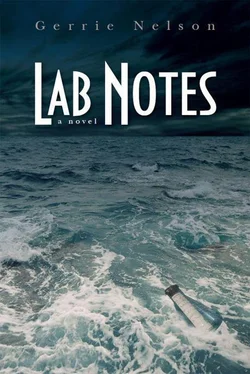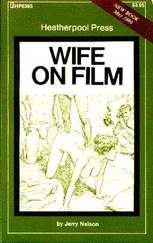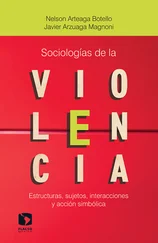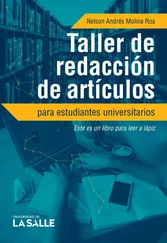Suddenly, before his startled eyes, Diane’s face appeared. Transfixed, Vincent watched her brush back ringlets from her forehead and take a sip of champagne. Then she smiled.
In his haste to discover the beneficiary of that smile, Vincent pulled the focus back too far and blurred his view. He breathed deeply. Then, with great restraint, he made slow corrections.
The distant ringing began once again.
Vincent’s hand trembled, making incremental adjustments almost impossible. But he persisted. And finally, “There!” Then, dumfounded, he said, “Where is she?”
Even with the scene out of focus, he could make out two men. A tall, slender man was speaking to a thickset one who had his back to the telescope. Vincent sharpened the view. The men turned and sat down on the edge of an oblong planter.
Vincent carefully focused on their faces. He was looking at Raymond Bellfort and Gabriel Carrera. For several seconds Vincent stood immobilized, watching, controlling his breathing lest they hear him. Then, with a guilty shiver, he jumped back from the scope.
He paced and stroked his beard. Then curiosity defeated his conscience, and he went back to the eyepiece. The men were deep in conversation. How he wished he could read their lips.
Then a thought crept across his mind: Could Harry Lee lip-read? His body quivered at the implication.
Why was Harry Lee spying on Raymond Bellfort?
The ringing in the background stopped.
Abandoning hope of eavesdropping on the conversation, Vincent pulled back the focus just one nerve impulse to broaden his view.
The two men sat on a wide terrace illuminated by soft lights that glowed from the bases of curved stucco railings. Behind them a boat lift held Bellfort’s 30-foot runabout. Raymond reached over and patted Gabriel on the upper arm as if congratulating him.
Vincent recoiled, bitterly recalling the same glad-handed treatment he and Diane received on that very terrace. All the while, Bellfort was plotting to sell Peruvase out from under him.
He watched the men through vengeful eyes while he planned his next move.
Diane crawled into bed and slid close to her husband. She had missed him.
Vincent had welcomed her home warmly. He apologized that he was so involved with the telescope he didn’t hear the telephone ringing.
He was still edgy about BRI. Even so, Diane was glad to be home. She began drifting off to sleep when Vincent’s voice startled her.
“Has anyone ever told you that Harry Lee was hard of hearing?”
Diane’s heart sank. It seemed Vincent’s obsession with Dr. Lee had grown in her absence. “Was he?”
“I don’t know.”
The conversation was going nowhere. “What made you ask?”
“The telescope… It’s a long story.” He yawned and turned away from her.
Now Diane was wide awake. She rolled onto her back and stared into the darkness. When would the craziness end?
Vincent’s voice interrupted her thoughts. “I took Woodwind offshore overnight for a shakedown cruise while you were gone. This morning I registered for the Vera Cruz race. I’m going to single-hand it.”
They were twenty-four in number—three generations of men wearing hunter’s khaki, riding straight-backed on their mounts, hands resting on the high pommel of their saddles, feet cradled easily in their estrebos .
On a chain, inside their shirts, hung their coats-of-arms—concealed, not only to preserve their anonymity as they traveled to their clandestine meeting place, but also to symbolize the group’s belief that anything hidden close to the heart, like a secret or an unpublished vow, ignited the deepest of passions and evoked the strongest commitments.
The horses wore no brand. They stepped along sure-footed, necks held in a regal arch as if they understood they had been bred for the noble task of bearing their masters, perpetually, to their destination—downward four hundred years to the valley floor.
The men were of a singular mind. Their ancestors had stormed ashore from Spanish galleons, taken the land and its many riches and were rewarded handsomely by their king. Centuries later they fought beside Simon Bolivar to clear the land of royalists and gain their independence.
Every third full moon, grandfathers, sons and grandsons, the educated power-elite of Colombia, rode together toward the stone lodge in the high valley to keep their date with a four-century-old tradition.
They were the Knights of New Granada. Their motto: “Retribution and Justice, two edges of the same sword.” Their mission in recent centuries: To preserve the oldest democracy in South America. Undetected. Unrestrained.
Sated from a banquet of roasted wild boar and platters of mountain-grown fruits and vegetables provided by the local Kogi women, the men somberly sipped coffee and smoked cigars on the large veranda.
At midnight, they prayed together before heading to their beds and an uneasy sleep. In the morning they would address some of their most difficult quandaries in two centuries.
At daybreak, the President for Life, Carabina , called the meeting to order. The tap of his gavel reverberated through the locked wine cellar. Following custom, Carabina appointed Espalda to take roll call.
At these meetings, the men went by the nicknames acquired in the academies and on the playing fields of their youth. The roll was in order of the Knights’ initiation dates into the secret society.
Espalda stood and called, “ Granadero .” The name echoed around the cave-like arches. Granadero responded, “ Aqui .” “ Caballero .” “ Aqui .” “ Caballo .” The men of the inner circle smirked; Caballo had earned his nickname in adolescence because of the size of his genitals. With his customary scowl, Caballo answered “ aqui .” “ Novicio .”… The roll call went on until the presence or absence of every member had been duly noted.
Carabina then asked Espalda to report, from memory, the minutes from the last quarterly meeting. In more than four centuries, none of the group’s business had ever been committed to paper. Espalda began his recitation.
Today, the minutes reflected the Knights’ agenda: to bring an end to the cultivation, manufacture and exportation of mind-altering drugs that plagued their country, undermining their social structure and economy for the past few decades.
Following Espalda’s report, Carabina opened the discussion to new business.
Novicio reported that economists estimated revenue from illegal drug exportation had exceeded Colombia’s entire GDP. He noted that most of the country’s legitimate businesses were owned by the grandees present in that room.
Worldwide mistrust of drug-exporting countries made for time-consuming, destructive searches of ships and planes in ports of call, negatively affecting their companies’ bottom lines. Their personal fortunes were at stake.
Caballo , one of the hardliners, insisted it was time for drastic action. He outlined a plan whereby those shipping lines, known to turn a blind eye to smuggling activities, would be boarded and “chastened” at sea. Private vessels that were suspect would meet with similar fates. Some airliners would have to be sacrificed also as a loud warning that these illegal activities will not be tolerated. After a group discussion of the details, Carabina called for a show of hands. The plans were approved.
Now, it fell to Granadero , the second in command, to address the heaviest issue of the day: narco -corruption at the middle and highest levels of government.
Читать дальше












